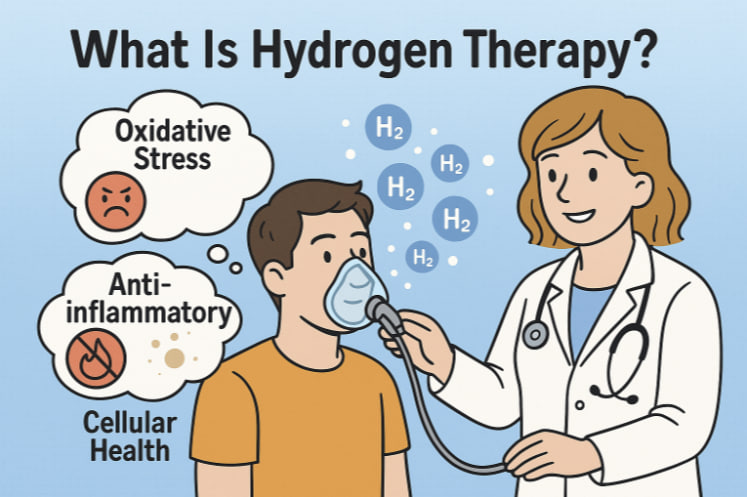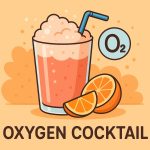Hydrogen therapy is a medical and wellness approach that involves the use of molecular hydrogen (H₂) to reduce oxidative stress, fight inflammation, and support cellular health. This therapy is based on the unique antioxidant properties of hydrogen gas, which can selectively neutralize harmful free radicals. While it is still a growing field, clinical studies and laboratory research increasingly point to its potential for treating or preventing a range of health issues.
How Hydrogen Therapy Works
Molecular hydrogen is the smallest and most basic molecule in the universe, which allows it to easily penetrate cell membranes, including the mitochondria and even the cell nucleus. Unlike conventional antioxidants, hydrogen does not neutralize all reactive molecules. Instead, it specifically targets the most damaging reactive oxygen species (ROS), such as hydroxyl radicals (•OH), while leaving beneficial signaling molecules intact.
This selective action means hydrogen therapy may reduce cellular damage without interfering with essential biological processes like immune defense or energy production. Because of its small size and neutrality, hydrogen can travel rapidly throughout the body, making it an efficient antioxidant.
Ways Hydrogen Therapy Is Applied
There are several ways hydrogen can be delivered into the body, depending on the desired effect and available technology:
- Inhalation of hydrogen gas using specialized inhalers.
- Drinking hydrogen-rich water, created by dissolving H₂ gas in water.
- Hydrogen baths and spas, where the gas is absorbed through the skin.
- Hydrogen-infused saline injections, which are under experimental testing.
- Oral tablets that release hydrogen in the digestive tract.
These delivery methods allow flexibility for different health goals, from skin rejuvenation to improving metabolic health and neurological function.
Potential Health Benefits and Scientific Evidence
Although research is ongoing, hydrogen therapy has shown promise in the following areas:
- Reducing inflammation in chronic diseases and injuries.
- Protecting organs from oxidative damage in heart attacks, strokes, and surgeries.
- Supporting recovery in neurodegenerative conditions like Parkinson’s or Alzheimer’s.
- Improving exercise performance and recovery by minimizing muscle fatigue.
- Alleviating symptoms of metabolic syndrome, including type 2 diabetes.
- Enhancing skin health by promoting antioxidant protection at the cellular level.
Some clinical trials have confirmed these effects, while others remain preliminary. However, the safety profile of hydrogen is well-established, and no significant side effects have been reported when used responsibly.
Is Hydrogen Therapy the Future of Preventive Medicine?
As oxidative stress and inflammation are underlying mechanisms in many chronic diseases, hydrogen therapy may emerge as a non-invasive, complementary treatment strategy. It is particularly appealing due to its simplicity, low toxicity, and natural compatibility with the body. That said, more long-term studies and regulatory evaluations are needed before hydrogen therapy becomes a mainstream option.
In the meantime, it is being explored not only in hospitals but also in wellness centers and athletic recovery programs. As public interest in non-pharmaceutical interventions grows, hydrogen may play a key role in the next wave of preventive and personalized medicine.
Glossary
- Oxidative stress: An imbalance between free radicals and antioxidants that can lead to cell damage.
- Molecular hydrogen (H₂): A gas composed of two hydrogen atoms, used in therapy for its antioxidant properties.
- Reactive oxygen species (ROS): Chemically reactive molecules that include free radicals, often damaging to cells.
- Hydroxyl radical (•OH): One of the most dangerous ROS, capable of damaging DNA and proteins.
- Mitochondria: The energy-producing structures in cells, often targeted by oxidative stress.
- Neurodegenerative conditions: Diseases such as Alzheimer’s or Parkinson’s that cause progressive nervous system damage.


